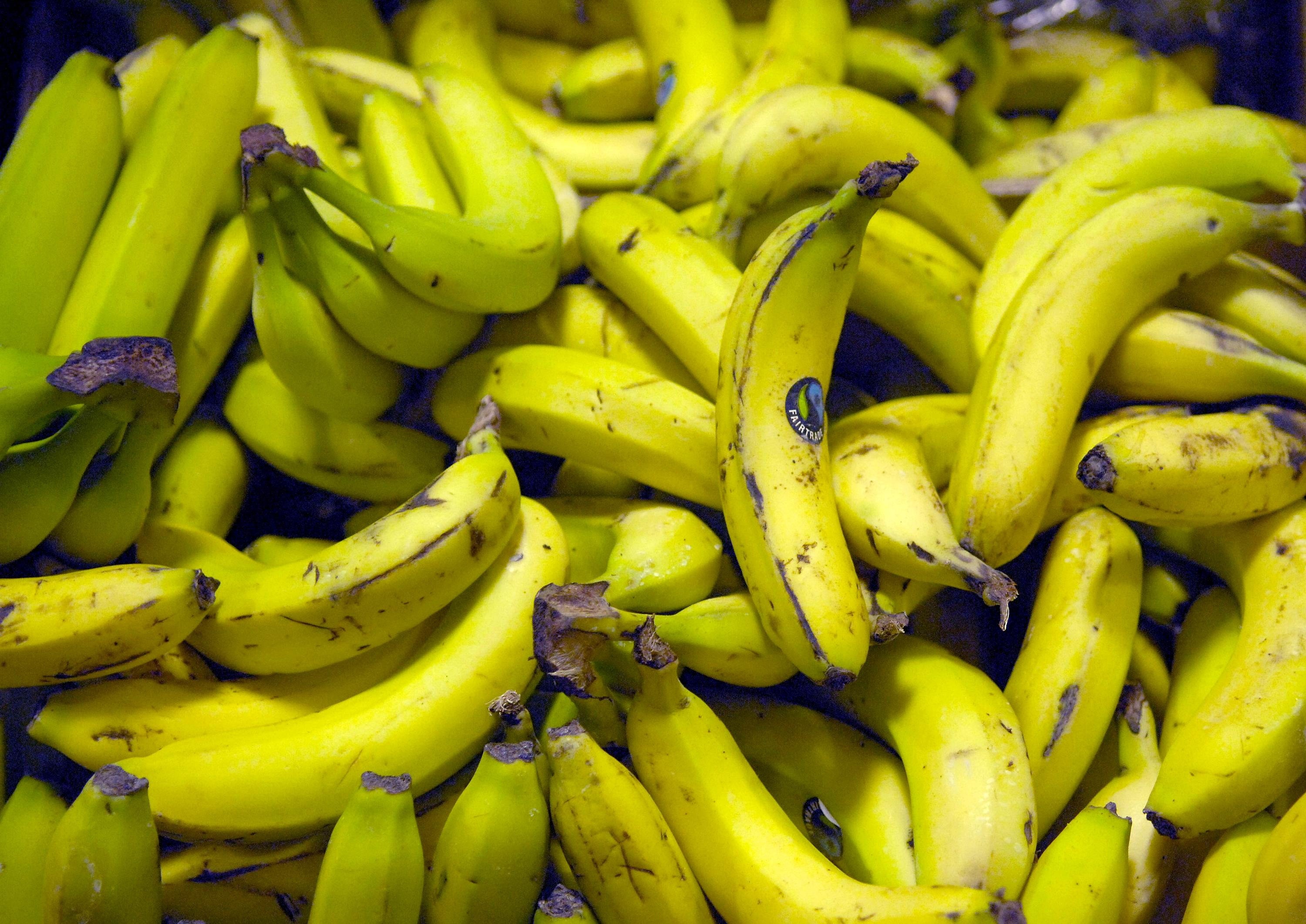Bananas and salmon ‘help reduce negative effect of salt in women’s diets’- study
The findings indicate potassium helps preserve heart health, but that women benefit more than men.

Your support helps us to tell the story
From reproductive rights to climate change to Big Tech, The Independent is on the ground when the story is developing. Whether it's investigating the financials of Elon Musk's pro-Trump PAC or producing our latest documentary, 'The A Word', which shines a light on the American women fighting for reproductive rights, we know how important it is to parse out the facts from the messaging.
At such a critical moment in US history, we need reporters on the ground. Your donation allows us to keep sending journalists to speak to both sides of the story.
The Independent is trusted by Americans across the entire political spectrum. And unlike many other quality news outlets, we choose not to lock Americans out of our reporting and analysis with paywalls. We believe quality journalism should be available to everyone, paid for by those who can afford it.
Your support makes all the difference.Eating foods such as bananas, avocados and salmon could help reduce the negative effects of salt in the diet of women, new research suggests.
The study found that potassium-rich diets were associated with lower blood pressure, particularly in women with high salt intake.
Researchers say their findings indicate the mineral helps preserve heart health, but that women benefit more than men.
According to the study, the relationship between potassium and damage to the heart was the same regardless of salt intake, suggesting that potassium has other ways of protecting the heart on top of increasing sodium excretion in the urine.
In our study, dietary potassium was linked with the greatest health gains in women
Study author Professor Liffert Vogt of Amsterdam University Medical Centres, the Netherlands, said: “It is well known that high salt consumption is associated with elevated blood pressure and a raised risk of heart attacks and strokes.
“Health advice has focused on limiting salt intake but this is difficult to achieve when our diets include processed foods.
“Potassium helps the body excrete more sodium in the urine.
“In our study, dietary potassium was linked with the greatest health gains in women.”
The study included 11,267 men and 13,696 women of the Epic-Norfolk study, which recruited 40 to 79-year-olds from general practices in Norfolk, UK, between 1993 and 1997.
Everyone completed a questionnaire on lifestyle habits, blood pressure was measured, and a urine sample was collected.
Urinary sodium and potassium were used to estimate dietary intake.
Researchers analysed the link between potassium intake and blood pressure, and found that potassium consumption (in grams per day) was associated with blood pressure in women.
They found that as intake of the mineral went up, blood pressure went down.
When the association was analysed according to salt intake, the relationship between potassium and blood pressure was only observed in women with high sodium intake.
During an average follow-up of 19.5 years, 13,596 people were admitted to hospital or died due to cardiovascular disease.
Overall, they found that people who had the highest potassium intake had a 13% lower risk of cardiovascular events compared to those with the lowest intake.
When men and women were analysed separately, the risk reductions were 7% and 11%, respectively.
The amount of salt in the diet did not influence the relationship between potassium and cardiovascular events in men or women, the researchers found.
Prof Vogt said: “The results suggest that potassium helps preserve heart health, but that women benefit more than men.
“The relationship between potassium and cardiovascular events was the same regardless of salt intake, suggesting that potassium has other ways of protecting the heart on top of increasing sodium excretion.”
The NHS recommends that adults (aged 19 to 64) need 3,500mg of potassium a day, and should be able to get this from their daily diet.
This research supports current advice that cutting down our intake of salt and eating more foods containing potassium can be the recipe for a healthier heart
High potassium foods include vegetables, fruit, nuts, beans, dairy products and fish.
For example, a 115 gram banana has 375mg of potassium, 154 grams of cooked salmon has 780mg, a 136 gram potato has 500mg, and one cup of milk has 375mg.
Tracy Parker, senior dietitian at the British Heart Foundation (BHF), said: “This research supports current advice that cutting down our intake of salt and eating more foods containing potassium can be the recipe for a healthier heart.
“An easy way to boost your potassium intake is by eating five portions of fruit and vegetables a day.
“Other foods like pulses, fish, nuts, seeds and milk are also high in potassium and low in salt, so can help benefit your heart.
“However, keeping healthy isn’t just about monitoring what’s on your plate.
“Limiting your alcohol intake and staying physically active will also help to lower your blood pressure, reducing the risk of a heart attack or stroke.”
The findings are published in the European Heart Journal, a journal of the European Society of Cardiology (ESC).